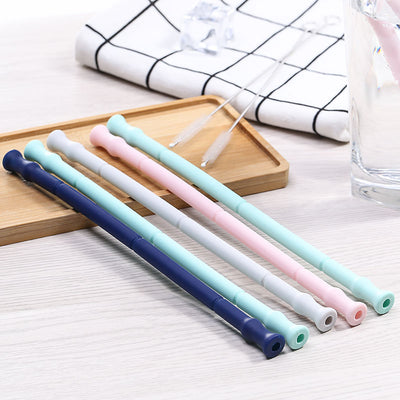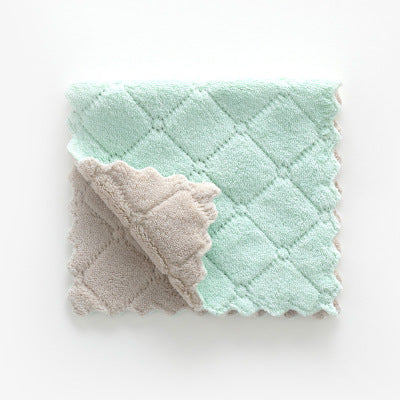9 Easy Tips to Kickstart Your Zero Waste Lifestyle
At the end of the month, how much garbage do you have?
Considering you found your way here, I'm guessing 2 or 3 bags. Wait, it’s more than that?
Wow, you really need this.
It may be hard to believe, but some people are making made giant strides in their journey to ZERO waste. In fact, by the end of every month, they can fit their whole month’s waste in a little jar.

But how did they get here?
What even is zero waste, and how can you join the train?
Here's what you need to know.
What the Zero Waste Movement is about?
The Zero Waste movement is exactly what it is — a sustainability trend created to achieve absolutely ZERO trash, thereby reducing your carbon footprint and plastic pollution. Less trash to burn means clearer skies, cleaner air, and plastic-free landfills. That's it.
And you should care about this because our planet can't afford to take any more of your trash.
However, it seems hard to achieve, especially with a fast lifestyle. We know, because we live in a world that encourages disposable culture. Statistics according to EPA show that Americans produce 4.4 pounds of trash every day. We create so much waste annually that it is starting to hurt our planet.
Today we've got a looming climate crisis because of the waste we produce (in carbon emissions and greenhouse gases). And an ocean full of plastic waste due to heavy dependence on single-use plastic materials.
Clearly, the avenue for waste creation is all around us. From the manufacturing of products, to the packaging, and their disposal.
However, the more you learn how much your love for convenience is hurting the planet, the less interest you have in contributing to it. So how can you contribute less waste?
How Do We Avoid Waste?
There are mixed feelings about having that little jar of trash. A significant share of people wonder how to get there.
While some have equated it to self deprivation — but that's far from the truth!
You don't have to stop having your coffee on the go. Nor do you have to sacrifice the savory delight of having a slice of pepperoni pizza when you get back from work. You don't have to deprive yourself of any pleasures to reach zero waste.
Pay attention, we'll expose the secrets of zero-waste heroes.
If you want to be a Zero-Hero, these tips are practical and easy to start.
9 Easy Ways to Have Zero Waste:
Cut Down on Single-use Plastics.
Most zero waste tips out there advocate for the need to cut down on our disposable culture. Whether they are made of plastic or paper, disposables are a no-no.
It's really not hard to see why most many sustainable minimalists, see plastic as their Number One enemy. The United Nation has estimated that by 2050, there'll be more plastic than fish in our oceans. So you need to do the following to reduce your plastic disposal:
1. Don’t use Plastic Straws:
Plastic straws are small, so it's easy to love and use them regularly. But when you have a drink every day, one straw becomes 30 in a month and 360 in one year.
Can’t fit 360 plastic straws in a small jar, can you?
Try reusable straws instead. These straws are great when drinking from a cup or a bottle. And you do not have to dispose of them, because they can be cleaned.
2. Say Yes to Reusable Bottles:
Don’t use a plastic bottle if you can avoid it. An easy way to do this is to have a reusable bottle with you when you head out.
You know you will get thirsty at some point, so you could fill it with water to avoid being tempted to buy a plastic bottle of water.
3. Use Cotton Towels instead of Paper Towels:
If you are serious about a zero-waste lifestyle, you have to stop using paper when you can use something else. So many trees are cut down to create towels that we are gonna throw away the second after we use them.
Seriously, what happened to using cloth towels/rags and then washing them afterward?
Let’s say your drink spills to the floor. You would need 2 or more paper towels to take care of that — garbage count increases. But one cloth rag would take care of that and many more spills after.
4. Ditch Disposable Paper Cups/Plastic Cups:
Ughh! Coffee lovers would hate to see this. But disposable cups are primary contributors to plastic pollution.
Yes, your favorite coffee flavors come in them, and they are easy to carry along with you. But guess what else could conveniently carry your Espressos and Lattes? A reusable coffee cup.
Consider switching to a reusable cup and watch your waste collection reduce significantly.
5. Switch to Reusable Shopping bags:
When you buy stuff at the mall or supermarket, you get a plastic bag to package your goods. Sure they help you carry your purchased goods conveniently back home, but they also contribute to plastic pollution, especially in oceans.
Consider purchasing your items in a reusable bag instead. That way, even if you go to the shopping store 8 times that month, you’ll end up with zero plastic bags in your trash can.
6. Buy only Naked Produce:
What is one thing most products at grocery stores have in common?
Plastic Packaging.
So whether or not you are setting out to contribute to plastic pollution, you automatically do when you buy stuff with a plastic wrapper or container. It makes you wonder if all zero-waste followers don’t shop for food since they end up with little or no trash.
But we do shop for food. And you can do the same too, without having any plastic on the ride-along.
Just opt to buy only naked produce (in a produce bag). You can find these at bulk stores or the packaging-free bulk food section in grocery stores.
7. Shop Your Groceries in Recyclable Packaging:
Before you say it, we will say it for you: “What about tomato sauce or hot sauce?”
Yes, we know some products do not come naked. However, you don’t have to settle for their plastic packaging either. Just purchase food that comes in cans, glass jars, or cartons.
8. Refill Your Containers:
Most sanitary products like hand wash, shampoo, and lotion, come in plastic containers. Which unfortunately means we pollute our environment just by trying to stay clean.
Instead of buying new ones when you run out, consider refilling your old containers instead. This is very helpful if you live close to a zero-waste store. Most zero waste stores have popular sanitary products in bulk, so just stop by one to get a refill.
9. Start Composting.
There is always gonna be stuff that you will have to dispose of. Things like leftovers from food, newspaper, printer paper, cardboard, etc.
This is where composting comes in. You should get a small compost bin to burn these items for you. And then return them back to the earth.
Conclusion.
You’re not gonna be perfect at the beginning of your zero waste journey, but you’d go a long way if you keep this in mind:
“More reusables and fewer disposables”.
Did we forget to mention some tips? Leave a comment below.












Leave a comment